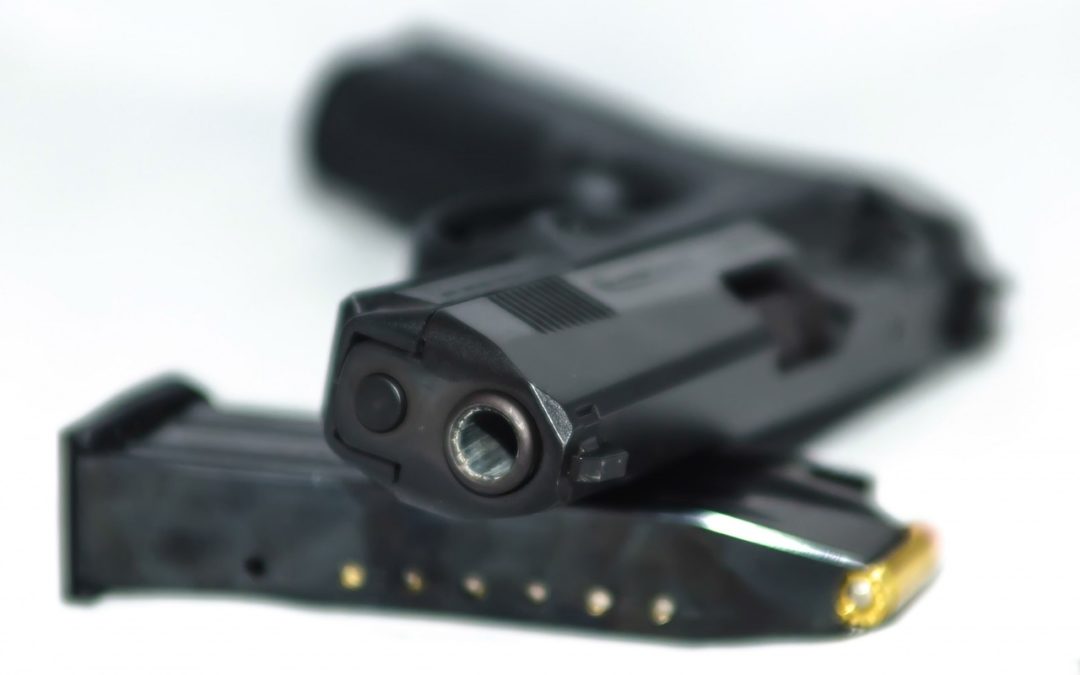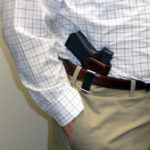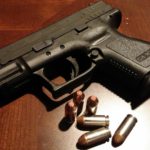Tennessee has broad statutes controlling weapons on school property, not just firearms. It is important to know just what is in the statutes. The statutes are very specific. This is only a summary of some Tennessee statutes.
In Tennessee, the general rule is that weapons are prohibited on school property. Exceptions may apply to possession in vehicles and to specially authorized individuals (see below). There are also statutes that allow possession within schools in special circumstances.
For instance, Tenn. Code Ann. §49-6-815 allows a faculty or staff member of a local school system to possess a firearm on school property, if the person has a handgun carry permit and is authorized by the director and principal to possess a firearm, and is a current or former law enforcement officer in compliance with training requirements.
Tenn. Code Ann. §49-6-816 allows “distressed rural counties” (defined in the statute) to authorize some full time employees to carry a concealed handgun. The employee must have a handgun carry permit and complete at least 40 hours of handgun training, plus 16 hours annually. One employee per 100 enrolled students may be authorized to possess a firearm. At the time of writing this article, the legislature is considering expanding this statute.
Tenn. Code Ann. §39-17-1309(c)(11) allows employees of public colleges who have a handgun carry permit to carry a concealed handgun. There are notification requirements and other limitations that are too lengthy for this article. An interested employee should consult with campus security about this process.
Private schools may adopt policies regarding carrying handguns on their property by permit holders. Tenn. Code Ann. §49-7-161 applies to institutions of higher learning and §49-50-803 is applicable to K-12. Policies must be in writing and provided to students, parents, faculty and employees.
Aside from the above statutes, the general statute involving weapons on school property is Tenn. Code Ann. §39-17-1309. Under (b)(1) of this statute:
It is an offense for any person to possess or carry, whether openly or concealed, with the intent to go armed, any firearm, explosive, explosive weapon, bowie knife, hawk bill knife, ice pick, dagger, slingshot, leaded cane, switchblade knife, blackjack, knuckles or any other weapon of like kind, not used solely for instructional or school-sanctioned ceremonial purposes, in any public or private school building or bus, on any public or private school campus, grounds, recreation area, athletic field or any other property owned, used or operated by any board of education, school, college or university board of trustees, regents or directors for the administration of any public or private educational institution.
The phrase “any other weapon of like kind” includes:
razors and razor blades, except those used solely for personal shaving, and any sharp pointed or edged instrument, except unaltered nail files and clips and tools used solely for preparation of food, instruction and maintenance.
Violations are a Class E felony, carrying 1 to 6 years imprisonment and a fine of up to $3,000. This subsection requires “intent of go armed” with the device.
Several important things to note about the application of §39-17-1309(b):
The statute applies to a wide variety of implements, not just guns and knives. Virtually any sharp, pointy instrument is covered.
The statute applies to all types of schools, public and private.
The statute applies to any type of educational institution, including colleges and universities.
The statute is not limited to the physical real estate of the school, it applies to buses and other property “while in use” by the very broadly defined meaning of a school.
Under subsection (8), if a handgun carry permit holder possesses a handgun in a park, greenway or similar location, “in the immediate vicinity” of property used for an athletic event or similar school-related activity, he must leave the area upon being informed or becomes aware the property is owned or being used by a school entity.
Another part of the same statute, §39-17-1309 (c), creates a Class B misdemeanor for a person to possess a firearm on school property. This subsection does not require an intent to go armed. Under (c)(1)(A), it is not a violation “for a non-student adult” to possess a firearm “within a private vehicle operated by the adult and is not handled by the adult, or by any other person acting with the expressed or implied consent of the adult.”
Tenn. Code Ann. §39-17-1309 also contains exceptions for weapon possession by members of the military “acting under orders” to carry arms or weapons, law enforcement officers “when in discharge of their official duties”, ROTC members “in the discharge of their official class or team duties” and private police or security guards in discharge of their duties.
Tenn. Code Ann. §39-17-1310 contains other affirmative defenses to carrying weapons on school property, if in strict compliance with the statute. Defenses include attending approved gun and knife shows, authorized hunting, and entering school property for the sole purpose of delivering or picking up passengers and the person does not remove or utilize the weapon from the vehicle or authorize same.
Tenn. Code Ann. §39-17-1313 allows a handgun carry permit holder to possess, transport or store a firearm in a motor vehicle, if parked in a location where it is permitted to be, the firearm is kept from ordinary observation and if the permit holder is not in the vehicle, locked within the trunk, glove box or interior of the vehicle.
In addition to Tennessee statutes, federal law also regulates possession of firearms on and around school property. 18 U.S. Code §922(q) prohibits possession of a firearm on the grounds of or within 1,000 feet of an elementary or secondary school. The statute does not apply to possession on private property within the zone or, if in a motor vehicle, of an unloaded firearm in a locked container or rack. The statute also does not apply to an individual who is licensed by the state in which the school zone is located to possess the firearm.
Those familiar with firearms law might be thinking, “Wasn’t that statute declared unconstitutional?” Yes, in 1995, in United States v. Lopez, the United States Supreme Court held that the original version of 18 U.S. Code §922(q) exceeded Congress’ authority to regulate interstate commerce. However, Congress enacted a revised version of the statute, which has been upheld by at least two federal appellate courts, the Eighth and Ninth Circuits.
Laws regarding weapons are complicated. This is especially true of laws concerning firearms and schools. The penalties for violations can be severe. Care should be taken in studying these statutes or consult with one of this firm’s lawyers.
If you would like to speak to James Wagner on this or any other matter, he may be reached at (865) 546-9321.
RELATED POSTS:

Frantz, McConnell & Seymour, LLP offers legal services in virtually every area of civil and business law representing clients throughout East Tennessee.





